Is Netanyahu on the verge of being ousted?
Protesters want Israel's leader to bring the hostages home
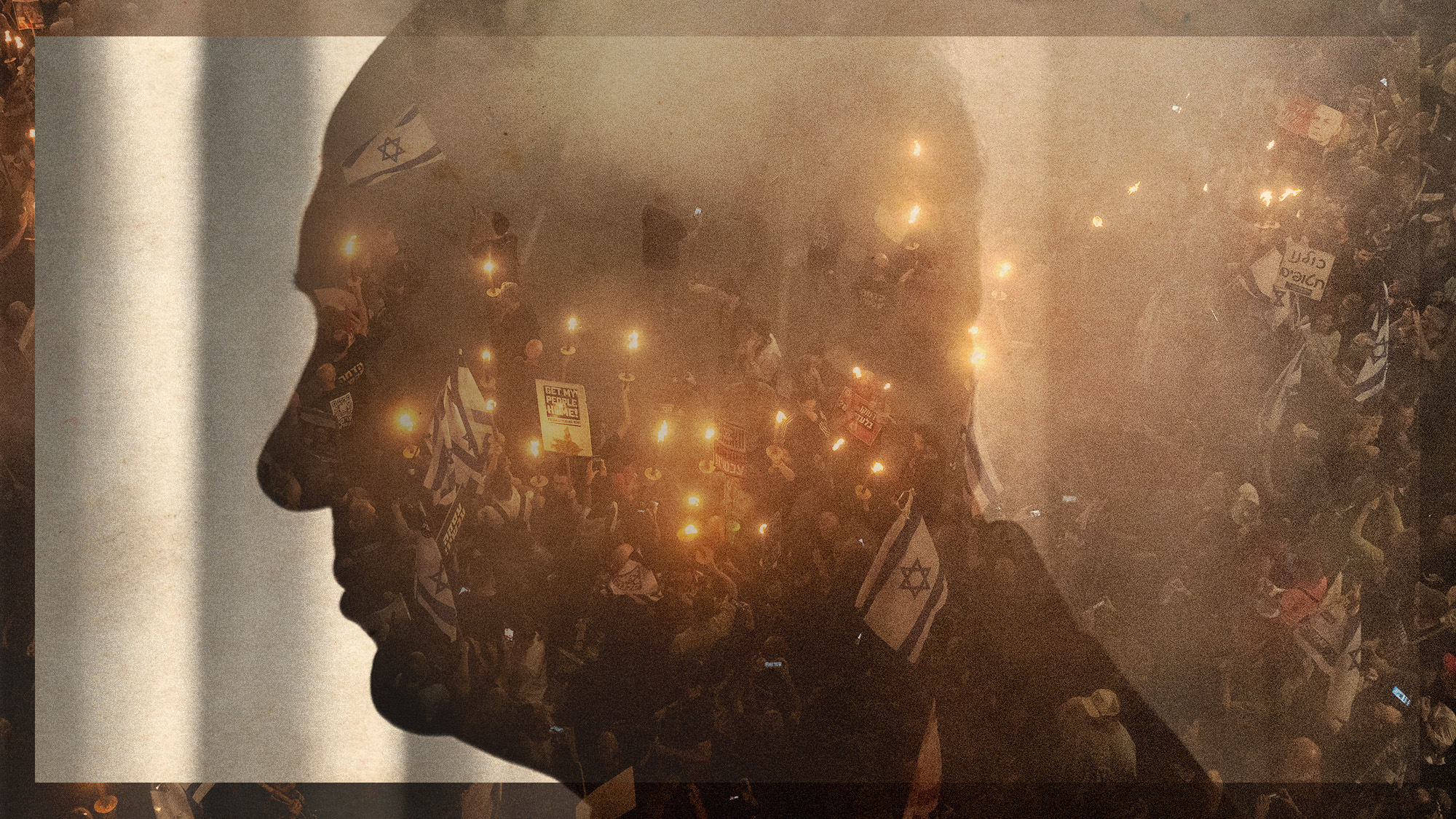

Benjamin Netanyahu may be in trouble. Tens of thousands of Israelis joined protests against his government on Sunday, said The Associated Press, in the "largest anti-government protest since the country went to war in October." The protesters called for a cease-fire in the war against Hamas, to free the dozens of Israeli hostages that remain held by the Palestinian group.
Among the protesters were family members of the more than 100 remaining hostages, said The Washington Post. They believe that Netanyahu is holding off a deal with Hamas to preserve his own political prospects. "I would have never believed that after six months I would need to fight with the government for my brother's right to return alive, or to return at all," said Carmi Paltzi Katzir, whose brother was taken hostage on October 7.
Even before the protests, Netanyahu was increasingly hemmed in by a United Nations resolution calling for a cease-fire, as well as an increasingly intense debate over whether ultra-Orthodox Jews — a critical part of his governing coalition — would retain their exemption from military service. "At some point even Israel's political Houdini may run out of wiggle room," said Dov S. Zakheim at The Hill. The question now is whether Netanyahu's government is "on the verge of collapse."
Subscribe to The Week
Escape your echo chamber. Get the facts behind the news, plus analysis from multiple perspectives.

Sign up for The Week's Free Newsletters
From our morning news briefing to a weekly Good News Newsletter, get the best of The Week delivered directly to your inbox.
From our morning news briefing to a weekly Good News Newsletter, get the best of The Week delivered directly to your inbox.
'Added resolve and rage'
The protests "show rage against Netanyahu is no longer waiting for the end of the war," Shalom Yerushalmi said at The Times of Israel. Sunday's demonstrators included many of the same people and groups who took the streets against Netanyahu's proposed judicial overhaul before the war: "It was a kind of reunion after a six-month hiatus." But there are differences: "The entire agenda has of course shifted, with added resolve and rage." And added urgency, as well. "The fear is that each passing day may cost the lives of more hostages."
"Netanyahu is a survivor, but his problems are stacking up," said the BBC's Wyre Davies. Israelis are openly skeptical that he can achieve his war aims of eliminating Hamas entirely. And one poll — conducted in November — revealed that just 4% of them trust his decision-making in the Gaza war. Netanyahu is expected to "do almost anything to stay in power," but the war is testing his ability to keep his coalition together. "Netanyahu cannot be all things to all people."
He is trying, however, to calm the passions aroused against him. "As Israel's prime minister, I am doing everything and will do everything to bring our loved ones home," Netanyahu said at a Sunday night press conference. But he warned that Hamas' demands would create new security problems for Israel. And he defended his own efforts to bring the hostages home. Those who say otherwise "cause unnecessary agony for the families of the hostages," Netanyahu said.
No elections until 2026?
Protesters may want Netanyahu gone, Dan Perry said at Forward, but they have "limited means to force him" to hold elections before 2026. And there is "little internal pressure within the government to consider standing down." That is an extraordinary sign of Netanyahu's staying power. "In parliamentary systems, governments as cataclysmic as this one are supposed to fall or resign." This means protesters have to pressure the leader instead to "visibly and persuasively" seek a deal for the return of the hostages.
"The unsettled and fundamental debates about Israel's character cannot be put on hold forever," Joshua Leifer said at The New York Times. The state of "permanent war" has created a "return to a modicum of normalcy" in the country's politics — and Netanyahu faced intense opposition even before the war began. The protests are just one more sign of a reckoning that is approaching, as Israel's leadership class is preparing accordingly. Even in Netanyahu's Likud Party, Leifer said, there are
"whispers of 'the day after Bibi.'"
A free daily email with the biggest news stories of the day – and the best features from TheWeek.com
Joel Mathis is a writer with 30 years of newspaper and online journalism experience. His work also regularly appears in National Geographic and The Kansas City Star. His awards include best online commentary at the Online News Association and (twice) at the City and Regional Magazine Association.
-
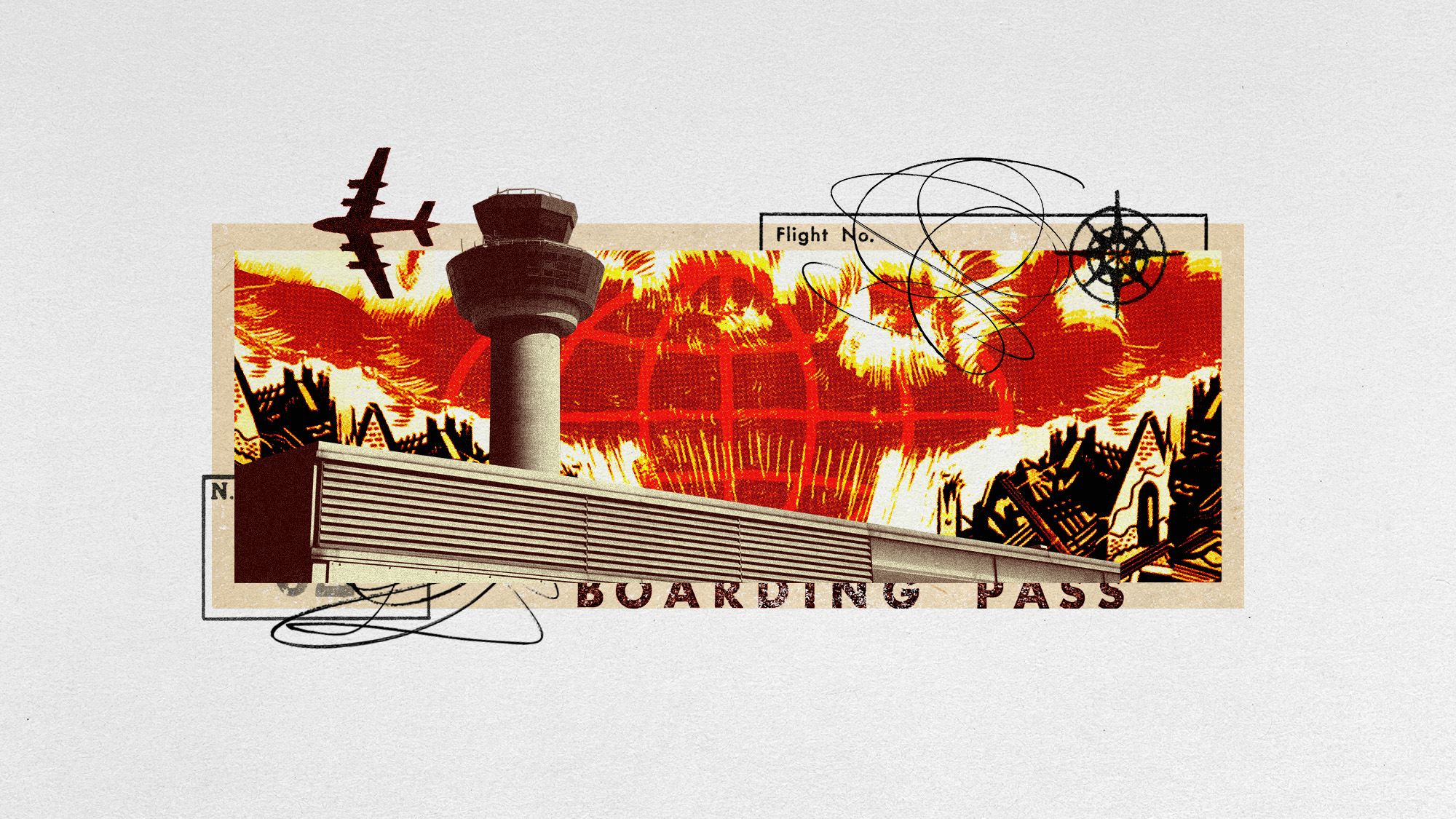 How global conflicts are reshaping flight paths
How global conflicts are reshaping flight pathsUnder the Radar Airlines are having to take longer and convoluted routes to avoid conflict zones
-
 Zohran Mamdani: the young progressive likely to be New York City's next mayor
Zohran Mamdani: the young progressive likely to be New York City's next mayorIn The Spotlight The policies and experience that led to his meteoric rise
-
 The best film reboots of all time
The best film reboots of all timeThe Week Recommends Creativity and imagination are often required to breathe fresh life into old material
-
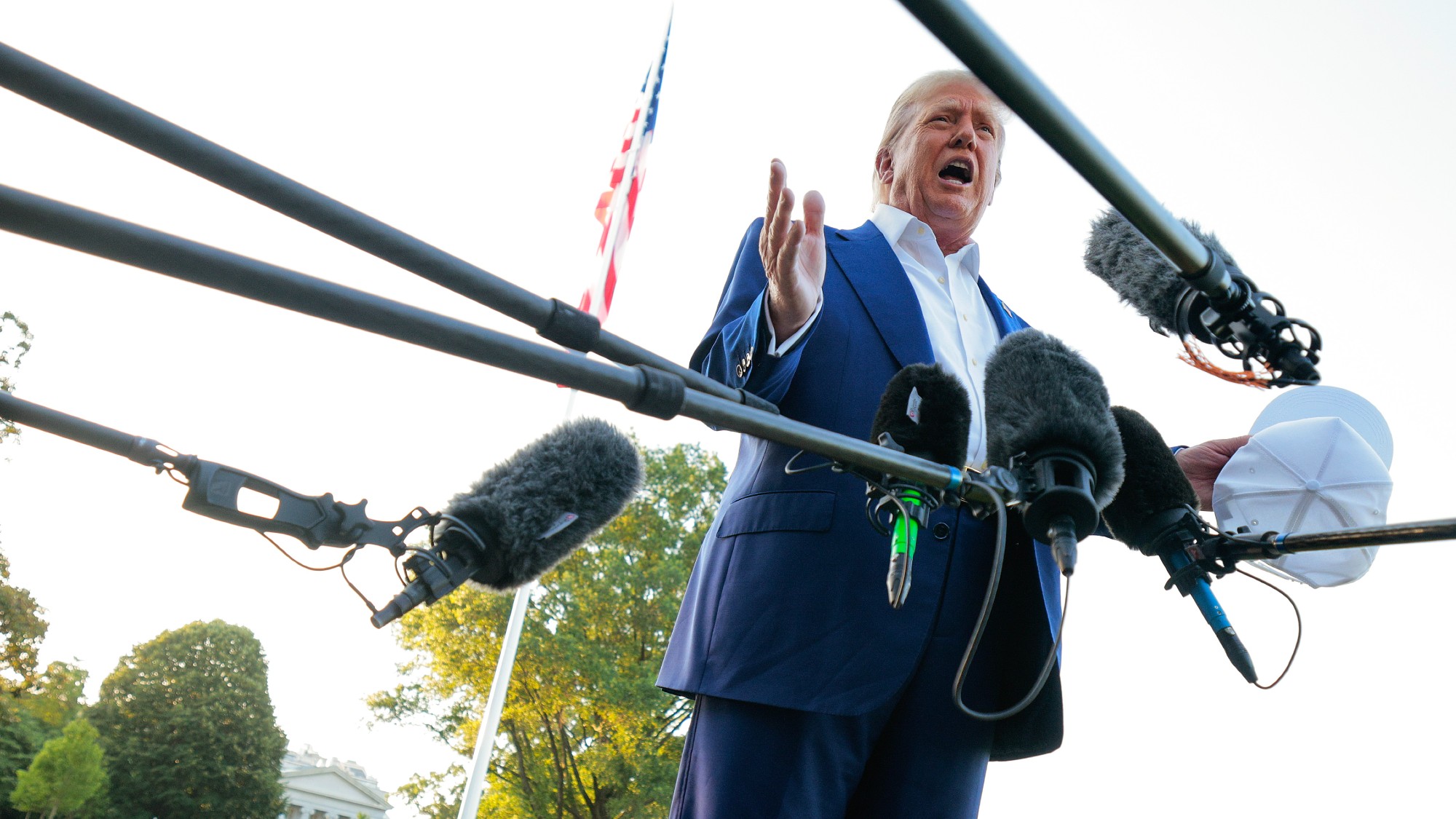 Trump's strikes on Iran: a 'spectacular success'?
Trump's strikes on Iran: a 'spectacular success'?In Depth Military humiliations 'expose the brittleness' of Tehran's ageing regime, but risk reinforcing its commitment to its nuclear program
-
 Bibi's back: what will Netanyahu do next?
Bibi's back: what will Netanyahu do next?Today's Big Question Riding high after a series of military victories, Israel's PM could push for peace in Gaza – or secure his own position with snap election
-
 How Zohran Mamdani's NYC mayoral run will change the Democratic Party
How Zohran Mamdani's NYC mayoral run will change the Democratic PartyTalking Points The candidate poses a challenge to the party's 'dinosaur wing'
-
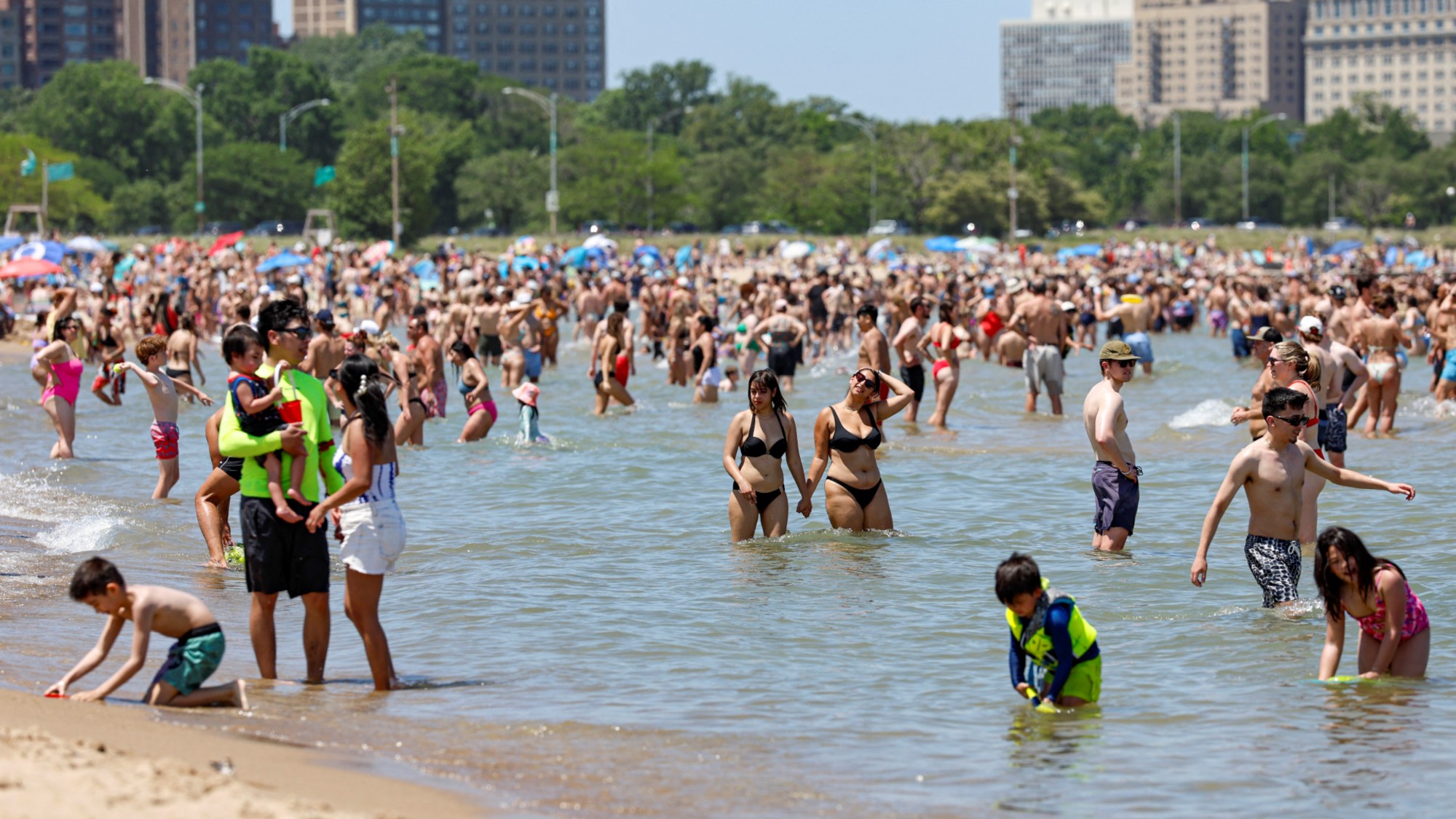 'Self-segregation by political affiliation is spreading'
'Self-segregation by political affiliation is spreading'Instant Opinion Opinion, comment and editorials of the day
-
 US assessing bomb damage to Iran nuclear sites
US assessing bomb damage to Iran nuclear sitesSpeed Read Trump claims this weekend's US bombing obliterated Tehran's nuclear program, while JD Vance insists the US is 'not at war with Iran'
-
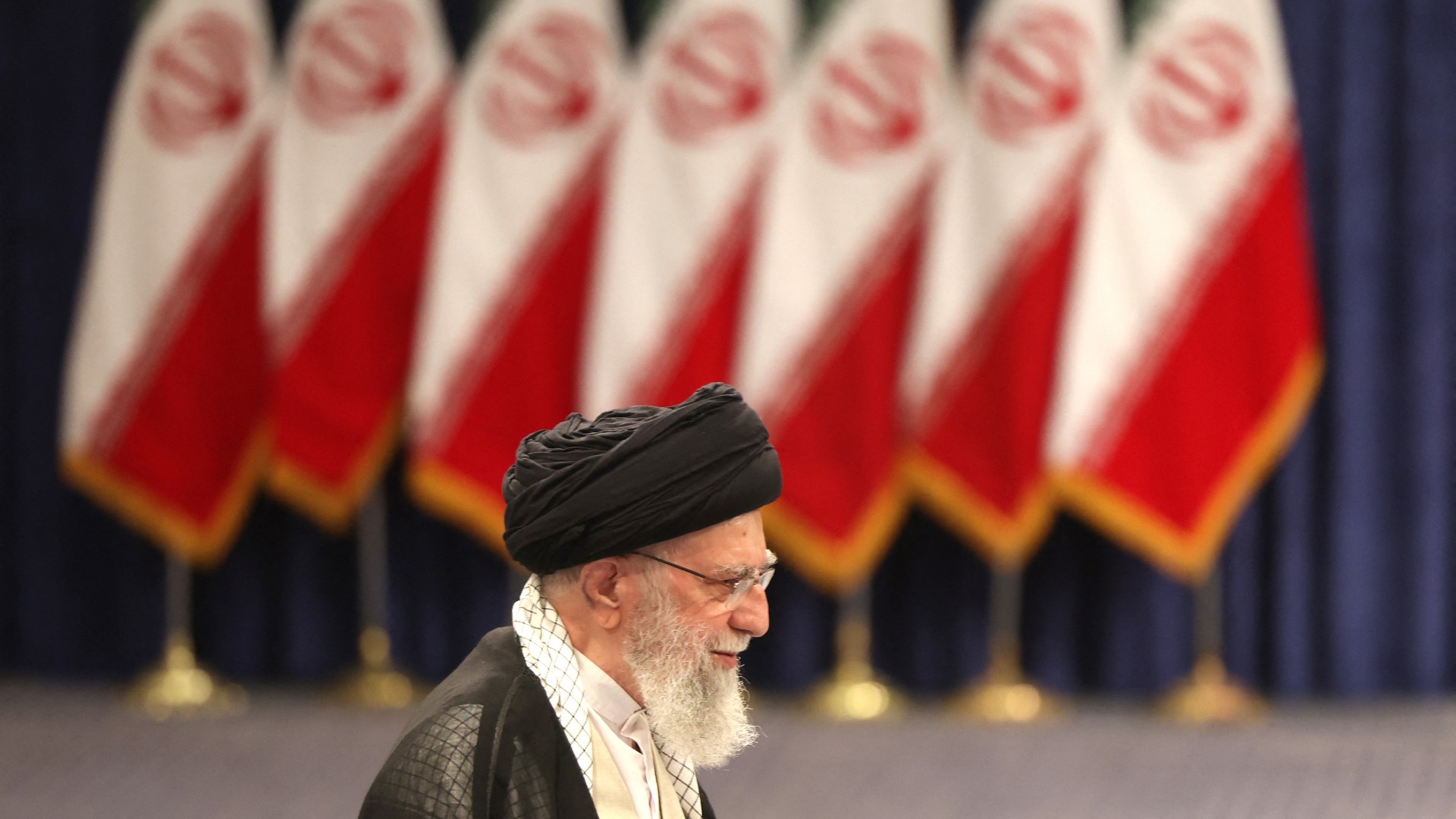 Will Iranians revolt?
Will Iranians revolt?Talking Point The chasm between Iran's rulers and their subjects is 'as great now as it was when Iranians toppled the Shah'
-
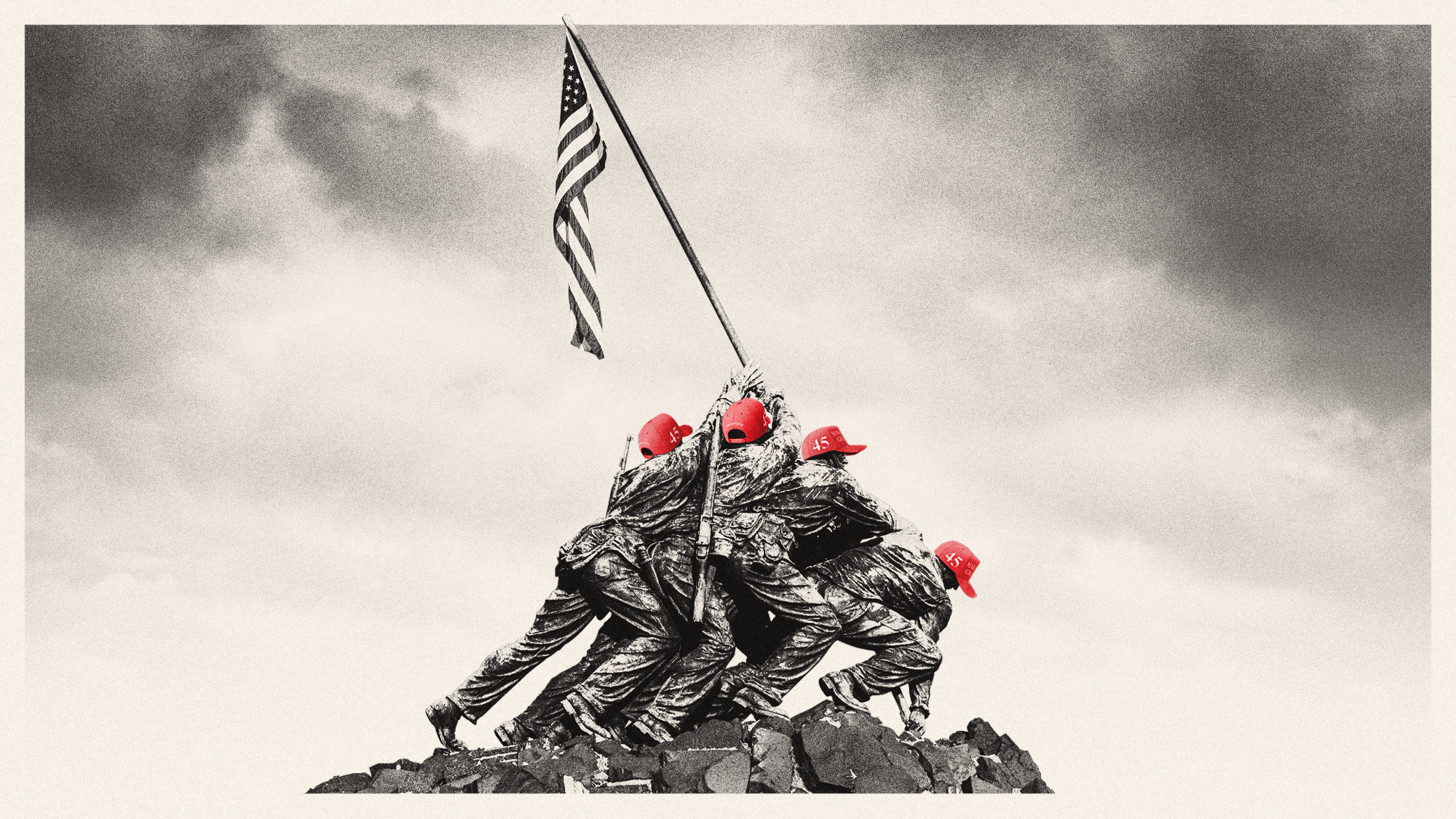 Can MAGA survive a US war on Iran?
Can MAGA survive a US war on Iran?Talking Points Trump's wavering sparks debate about 'America First'
-
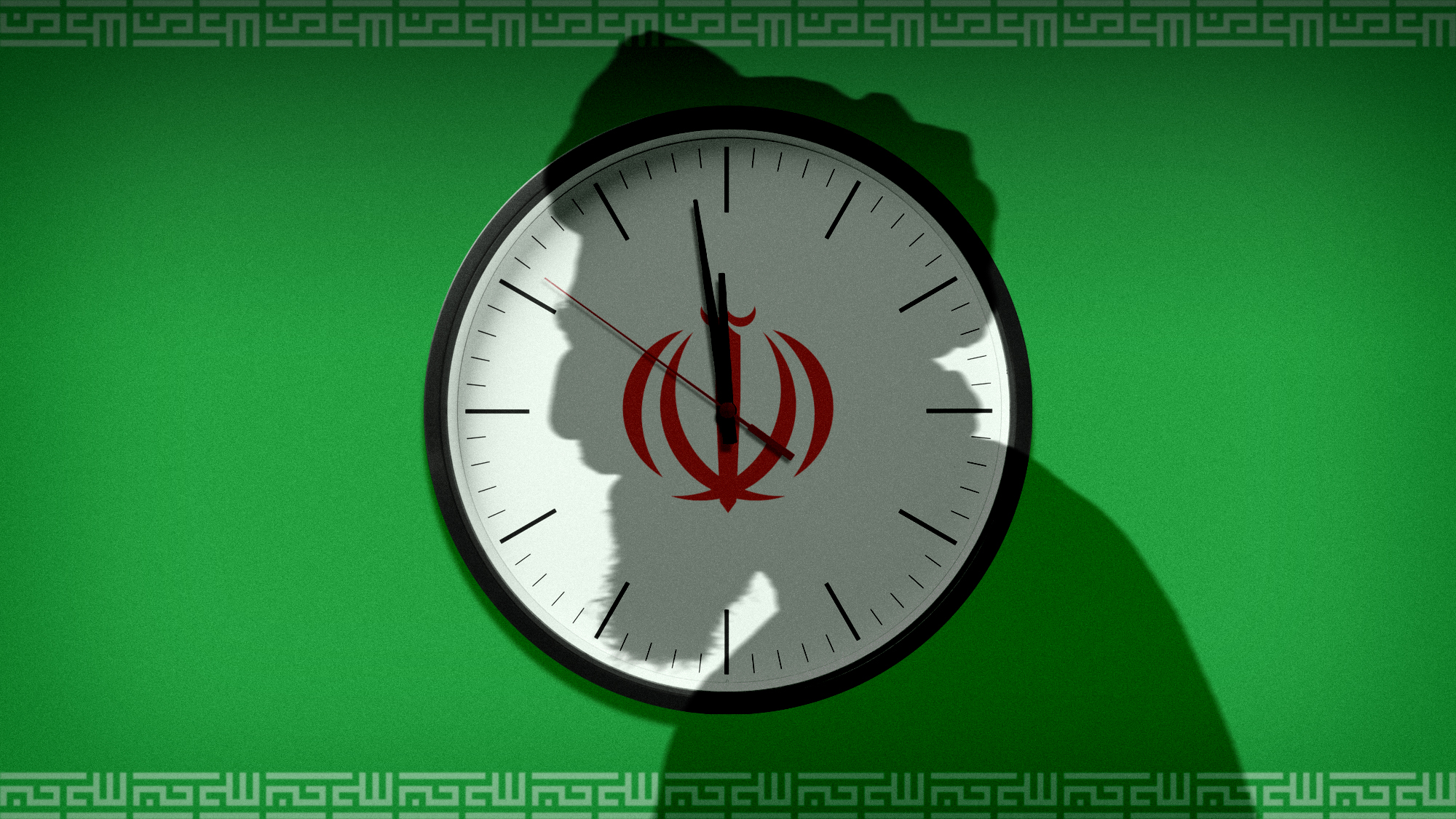 Can Iran's government survive war with Israel?
Can Iran's government survive war with Israel?Talking Points 'Regime change' may be on the agenda
